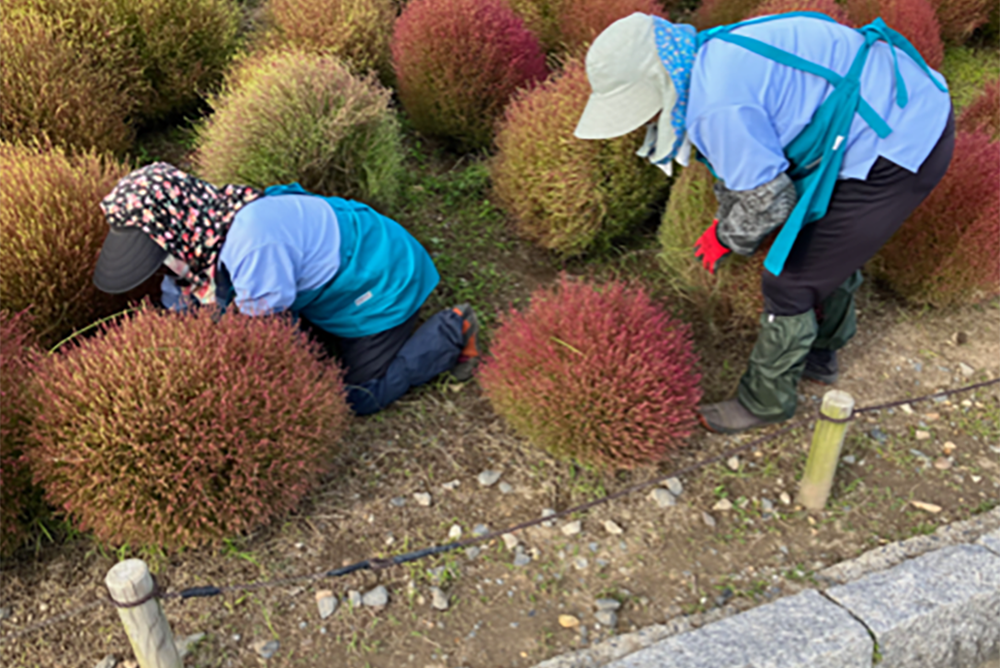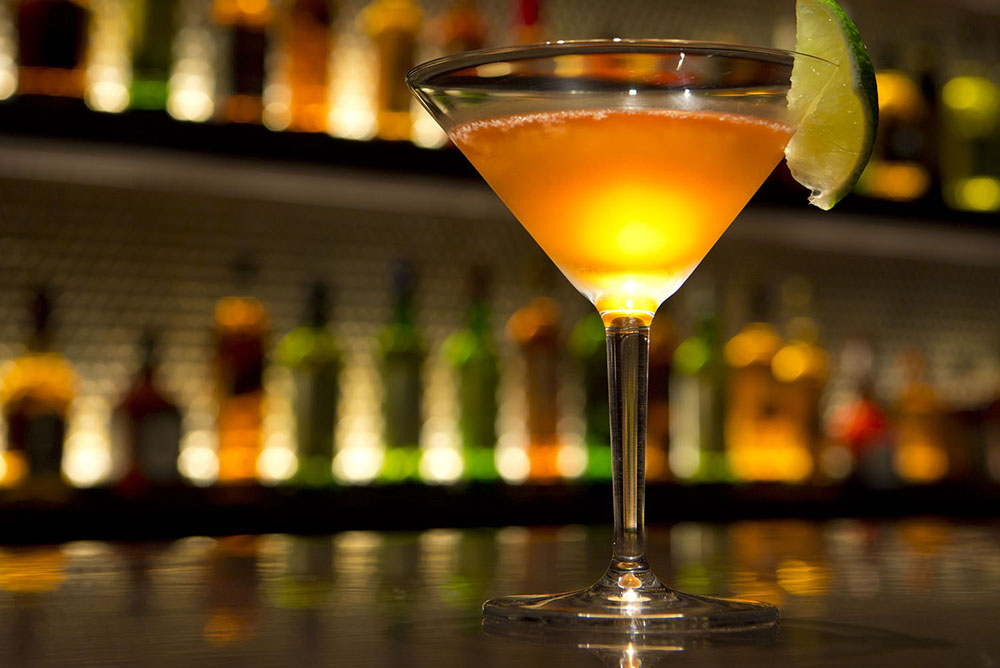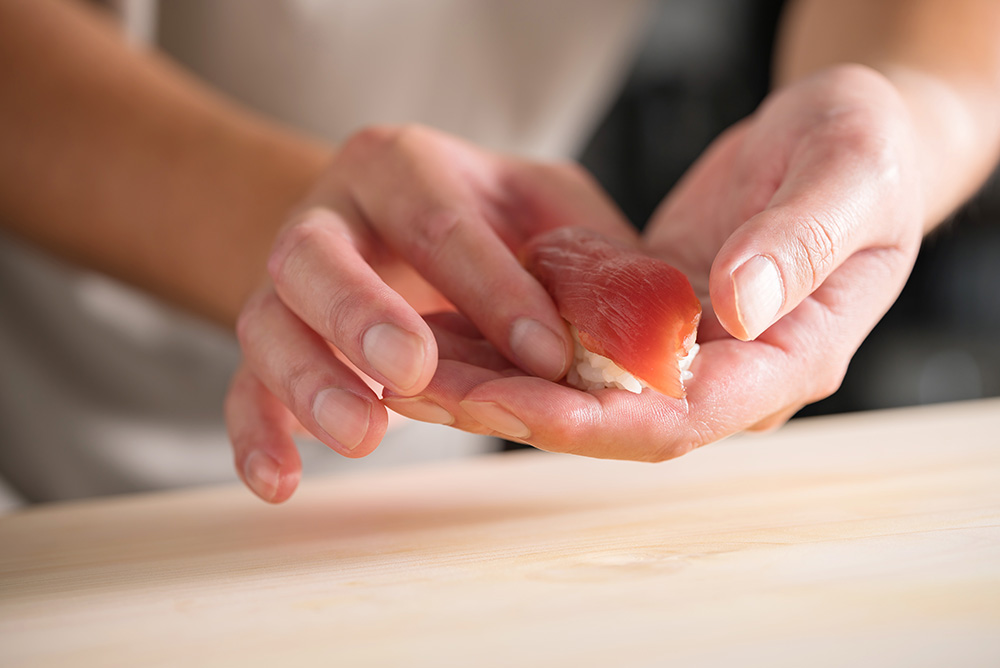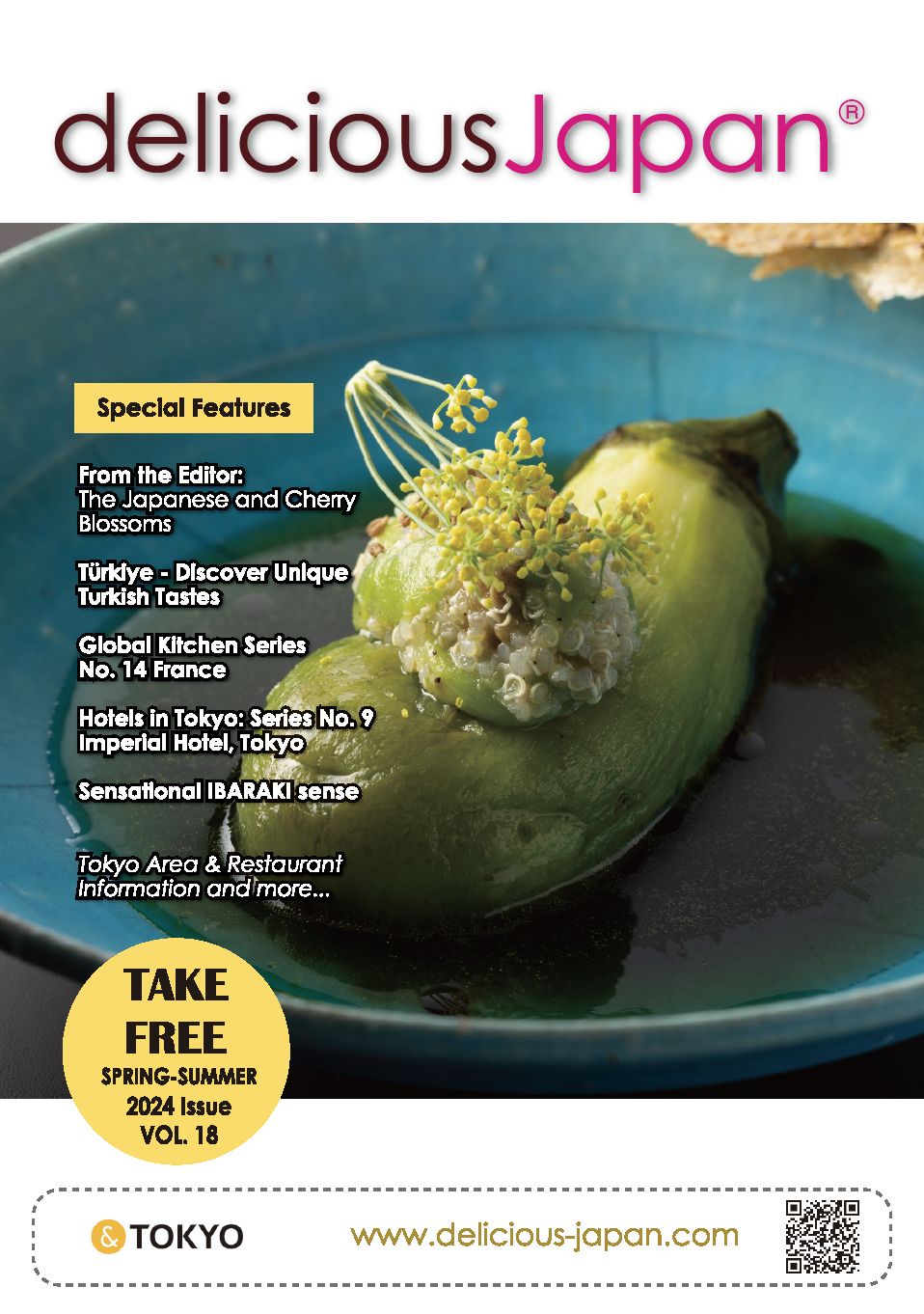Hotel Century Southern Tower
Enjoy relaxing omotenashi and food for all your senses, at a superb location with views over the streets of Tokyo
Atsushi Ishikawa
Executive Chef
Hotel Century Southern Tower
Perhaps it was because I was an ignorant 26-year-old, but all the ingredients I encountered seemed delicious. One thing that made a particularly strong impression on me was that the dairy products, the cream, butter, and cheese, were at a totally different quality level compared to those in Japan.
Of course, I also noticed differences in vegetables and animal products, and there are differences in climate from Japan, as well as associated differences in producers’ attitudes and methods for growing plants and animals. I got a sense of how ingredients grown in Europe match its climate, and those ingredients are made into dishes which suit them, and layers of historic background are added to those dishes, to create diverse cuisines. I was able to learn a lot about things like history and culinary culture in that way.
My role is to use food to elevate the hotel’s brand.
I emphasize themes that fit the needs of the times, and dishes (product development) which tell stories.
For example, I think about things like “what are our guests looking for in these pandemic times?” and “what kinds of food do they want to share with whom and in what situation?”. I strive to develop dishes that don’t just taste good, but also convey a message from the hotel, as the creator.
That would be combinations of precious ingredients from various places that can only be tasted at Southern Tower. One example would be the marriage between Spanish beef and Japanese ingredients (Tokyo vegetables).
What is the key point for choosing ingredients, or the most important aspect of sourcing ingredients?It’s the selection of ingredients that provide differentiation and tell a story. I think the level of completion of the cooking is almost entirely determined by the selection of ingredients. There’s also the quality of the ingredients, of course, and it’s important to have something people will talk about, like being unavailable anywhere else, or being offered for the first time in Tokyo.
I also make an important point of knowing the characteristics and background of each ingredient. I mean things like the environment in which the ingredient was grown and what the producer thinks. When I source ingredients, I go to the places where they are produced, talk to the producers, and pick up inspiration for dishes from the air and scents of the local climate and land.
We ask our guests in detail about their gluten free and allergy-related needs, and serve them with special menus. For vegetarian and vegan diners, we offer vegetable-only full course meals that target inbound travelers. It’s a vegetarian/vegan menu made mainly from vegetables grown in Tokyo, following the theme of local production for local consumption.
We don’t have any dedicated cooking equipment or kitchens for halal or other religious needs, but as we do for allergies, we ask our customers what they want, and do our best to comply.
I’m currently developing dishes using flounder grown in Obama, Fukui Prefecture.
Even though it’s farmed fish, it is grown in facilities on land and kept organic, as a trustworthy and sustainable food in line with the SDGs.
In contrast to naturally grown fish, people can enjoy eating this fish raw without worrying about Kudoa or other types of parasites, so I think it’s an ingredient that matches current needs.
To me, omotenashi means letting guests experience foods and services that exceed their expectations.
Job of the Concierge is to Guide Guests as They Create Happy Memories
Rie Yokozawa
Chief Concierge
Hotel Century Southern Tower
Due to the reduction in inbound demand, occupancy rates, which had been averaging in the 90% range, are now down to around 30%. The future depends partly on the relaxation of national regulations, but we expect to see a recovery in inbound travel starting in the second half of the year, and we aim to push occupancy back up to 60% within this year.
What are the attractions of Hotel Century Southern Tower, which has been rated number one by its guests?Besides the views and the location, I think the smiles of our employees are a great attraction.
In pre-pandemic times, what was the ratio between domestic and foreign guests? And what countries and regions did the most guests come from?The ratio was 30% domestic to 70% foreign. There are many guests from North America and Europe, but guests from East Asian countries, particularly Hong Kong, Taiwan, and South Korea, are also numerous.
What is the thing you pay most attention to when receiving foreign guests?We strive to strengthen our communication skills, to make sure we recognize languages correctly and are able to listen and respond accurately.
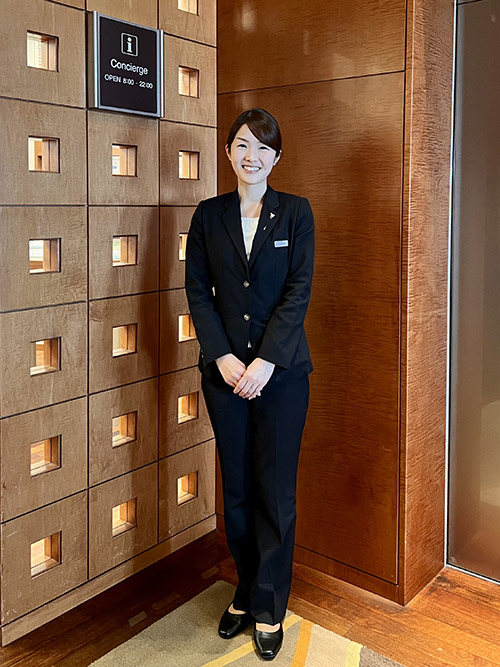 How would you advise foreign guests to spend their time at your hotel?
How would you advise foreign guests to spend their time at your hotel?We have an excellent location, a three minute walk from Shinjuku Station, so our concierge can guide them to all sorts of tourist attractions within easy reach, helping them to enjoy their trips even better and go home with more memories.
When guests arrive, we guide them so that they can enjoy meals freshly prepared in our restaurants while enjoying the views from rooms on higher floors.
I always strive to think about things from the guest’s perspective, and to serve each guest the way that suits them best, so I can provide them with a comfortable place that feels like a second home. In the event of any complaint, I put my heart into handling the situation sincerely, so our guests become repeat customers.
What is “true omotenashi”?We put our hearts into considering the background of each guest and giving them personally tailored service, so they want to come to Southern Tower again and to talk to our staff.

